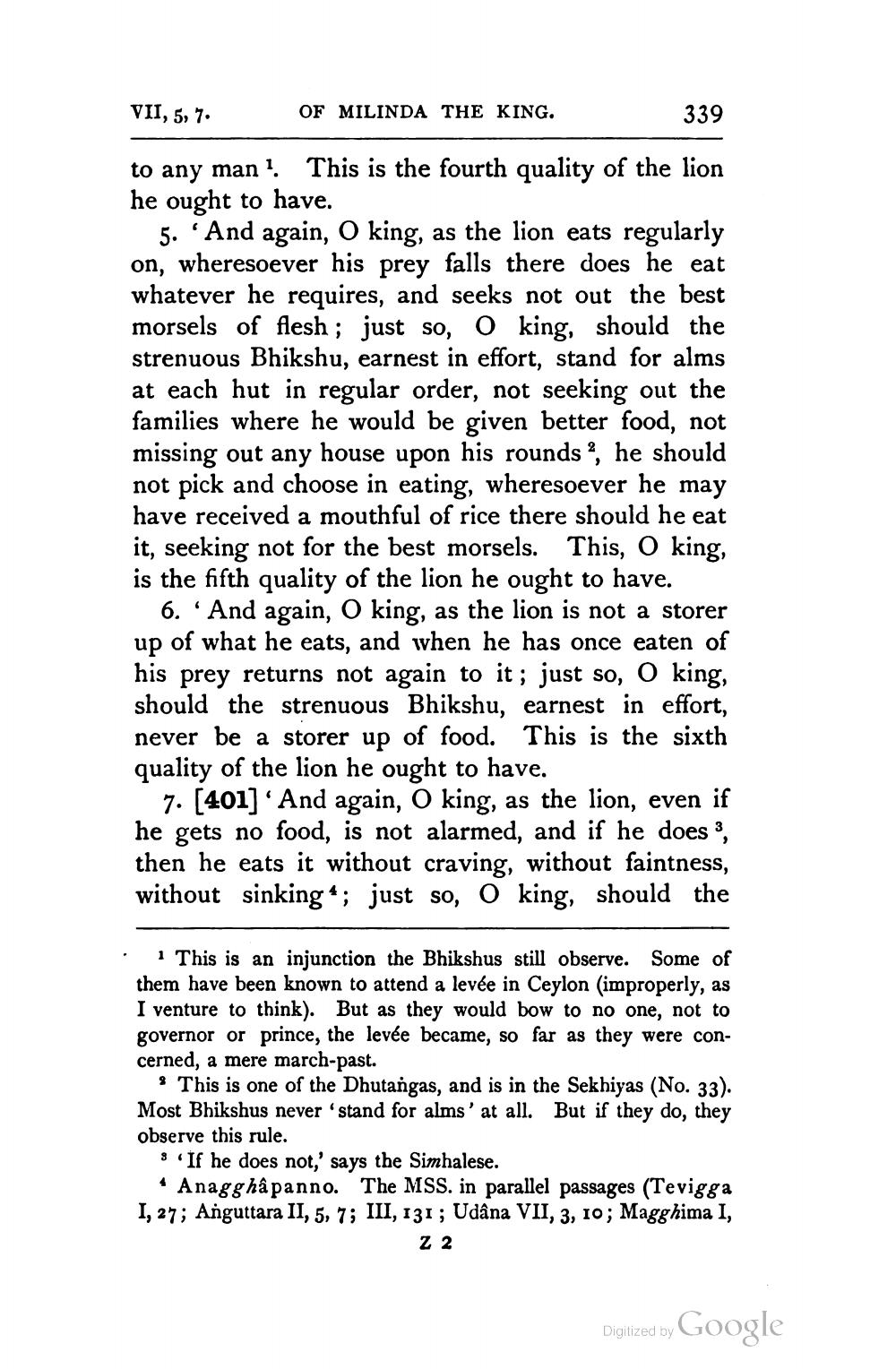________________
VII, 5, 7.
OF MILINDA THE KING.
339
to any man! This is the fourth quality of the lion he ought to have.
5. And again, O king, as the lion eats regularly on, wheresoever his prey falls there does he eat whatever he requires, and seeks not out the best morsels of flesh; just so, o king, should the strenuous Bhikshu, earnest in effort, stand for alms at each hut in regular order, not seeking out the families where he would be given better food, not missing out any house upon his rounds ?, he should not pick and choose in eating, wheresoever he may have received a mouthful of rice there should he eat it, seeking not for the best morsels. This, o king, is the fifth quality of the lion he ought to have.
6. 'And again, O king, as the lion is not a storer up of what he eats, and when he has once eaten of his prey returns not again to it; just so, O king, should the strenuous Bhikshu, earnest in effort, never be a storer up of food. This is the sixth quality of the lion he ought to have.
7. [401] · And again, O king, as the lion, even if he gets no food, is not alarmed, and if he does , then he eats it without craving, without faintness, without sinking *; just so, O king, should the
• This is an injunction the Bhikshus still observe. Some of them have been known to attend a levée in Ceylon (improperly, as I venture to think). But as they would bow to no one, not to governor or prince, the levée became, so far as they were concerned, a mere march-past.
* This is one of the Dhutangas, and is in the Sekhiyas (No. 33). Most Bhikshus never stand for alms' at all. But if they do, they observe this rule.
8.If he does not,' says the Sinhalese.
* Anagghâpanno. The MSS. in parallel passages (Tevigga I, 2; Anguttara II, 5, 7, III, I3I ; Udẫna VII, 3, Io; Magghima I,
Z 2
Digitized by Google




